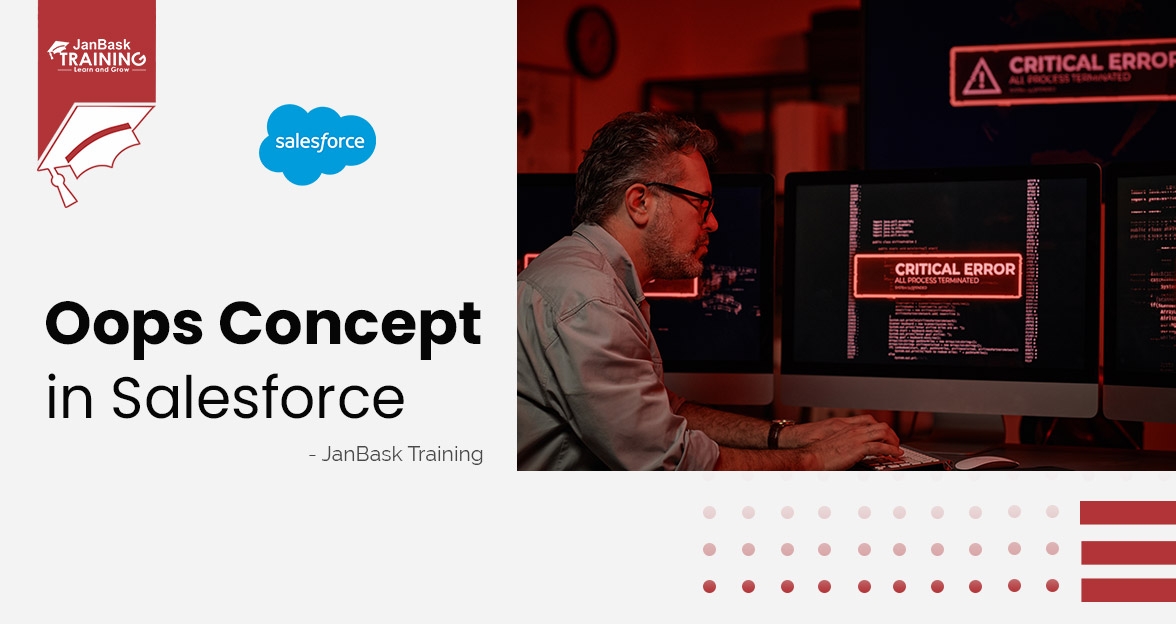Grab Deal : Flat 30% off on live classes + 2 free self-paced courses - SCHEDULE CALL
We know that there are different types of salesforce licenses associated with different editions provided by salesforce license types. Different permits provide access to specific features of the Salesforce platform. For an organization, all available licenses can be found on the company’s information page. For example, we need ‘Read’ permission to check the contracts. This permission is available in User License, and multiple licenses are supported in single approval.
In short, Salesforce is a leading cloud-based CRM and cloud computing offers various computing services like servers, storage, databases, networking, software, analytics, and intelligence—over the web offering quick innovation, scalable resources, and much more. Join cloud computing courses, if you wish to become a cloud computing expert.

It specifies which features a consumer can access in a salesforce environment. Every sales force user type or consumer should have a one-user license. We can implement a few permissions for accessing data from a profile.
Refer Salesforce Training to learn more
It extends the functionality of the user. We can create, view, and manage our permission set license. We can create more permissions for the users than that user license. It contains a setting that grants user permissions.
The additional benefits or functions which are not available in the user license are provided by the feature license. E.g., Marketing
Access to a system's bare-bones functionality is often outlined in a user's license. Each individual must have precisely one user license. that have a profile and maybe one or more permission sets via which they are granted access to certain data. Refer Salesforce self-learning course to learn more
Access to all basic CRM and AppExchange applications is included in all salesforce licenses types. All pre-built and/or developed apps are available to users with this user license. Customers of the Enterprise, Unlimited, and Performance Editions have varying storage capacities depending on their license type. For Your Eyes Only Users that need access to just the Salesforce Knowledge app may purchase a special sort of user license. Using this license, you have access to your tabs and objects, as well as the following industry-standard tabs.
Employees that need more licenses to use identity services like single sign-on may get them from the Identity Only licensing category (SSO). Customers and partners may self-register, login, and update their profile as well as securely access online and mobile applications with a single identity using Salesforce Customer Identity, which is available with the External Identity license type.
This Policy Applies Only to WDC User salesforce license types are created for people that need access to WDC but do not have a Salesforce license.
Refer Salesforce master training to learn more.
Users that need access to bespoke applications but need basic CRM features can find what they need on the Salesforce Platform. With this user license, your organization's employees may run any applications built in-house or downloaded from the AppExchange. Users get access to the platform's essential features, including accounts, contacts, reports, dashboards, documents, and user-created tabs.
When it comes to CRM, the basic features aren't as important as having access to a single bespoke app, which is why Salesforce built the Lightning Platform - One App. Users of Lightning Platform - One App have access to an infinite number of custom tabs, in addition to the same capability as Salesforce Platform users. However, only one custom app with a maximum of 10 custom objects is allowed. Additionally, they have no editing capabilities on the Accounts or Contacts objects and can only read from the Push Topics object.Users may have access to either a Lightning Platform Light App or a Lightning Platform Enterprise App with a Force.com - App Subscription. But customer relationship management features are omitted. Access to Salesforce Files, Chatter (including profiles, groups, and feeds), and an Experience Cloud site are available to employees with a license for the Company Community.
To create modifications or apps, users need access to development tools, and this is what developer user licenses are for. Included are one Developer sandbox, one scratch org, and use to the Dev Hub. Also, learn how to create a Salesforce developer account for developing Salesforce apps.
Refer Salesforce developer to learn more
Every single employee in your company may use Chatter for free as long as they have a regular cost of salesforce license. Salesforce also provides Chatter-only licenses in addition to its general Salesforce subscriptions (also known as Chatter Plus). Users from outside your company's email domain should utilize Chatter External. A Chatter group might include these individuals from outside the company. Users, or "customers", may only engage with other users in the groups to whom they have been invited. They have no access to Chatter objects or data and cannot modify their profiles.
If you require access to Chatter but don't want to pay salesforce license costs, you may utilize Chatter Free instead. Standard Chatter items are available to them, but they have no access to Salesforce data or objects. The Chatter Free community also has the option to moderate the service. Customers that already have Chatter Plus but don't have budgets for salesforce licensing costs but still want access to Chatter and other Salesforce objects may sign up for Chatter Only.
• Experience Cloud site users who want to utilize Chatter and a broad range of Salesforce products should sign up for Lightning Platform Starter.
Licenses for Cloud Users with Actual Experience Accounts, Contacts, Cases, Knowledge, Opportunities, Leads, Custom Objects, Send Emails, Sharing Sets, Advanced Sharing Rules, and Reports & Dashboards are just some of the features that may be accessed by purchasing one of the five available licenses.
• The third-party app supports 100 unique items but has limited access in other areas.
For Experience Cloud domains, a Channel Account license is offered, which grants the same permissions and access to features as the Partner Community license. Instead of charging per user or membership, these licenses are charged per partner account. Partners may provide access to customers.
Each of these bundles comes with a license for the Salesforce Platform as well as a license for the Company Communities Permission Set. Some of the Salesforce Standard Objects that fall under this category include Accounts, Assets, Contacts, Cases, Opportunities, and Leads. Custom Objects and other capabilities like Send Email, Sharing Sets, and Advanced Sharing Rules are a part of this. Users having access to the Salesforce Platform and the Company Communities Permission Set License may utilize these capabilities.
Those who need access to Database.com may do so with this user license.
When combined with the High Volume Customer Portal license, this one allows an infinite number of contacts to access your Service Cloud Portal and see your customer support documentation. Accounts, assets, cases, contacts, custom objects, documents, ideas, and questions are all accessible to users with this license, according to the user's authorization settings.
Guest User and Site.com Only user licenses provide access to sites and site.com. Users that need access to Site.com or Experience Cloud sites will find this very useful.
Only portal users of Salesforce Sites for Platform may make use of the Authenticated Website license. This permits as many simultaneous user sessions as needed to view the Platform Portal's help documentation.
The standard license for the Customer Portal Manager grants access to the Customer Portal to manage customer assistance.
Users with a Customer Portal Manager Custom license may access the Enterprise Administration section of the Customer Portal. With this license, you may provide an unlimited number of users access to the Salesforce Customer Portal, where you can handle any customer service inquiries.
Businesses that aren't utilizing the partner portal as of the summer of 2013 will no longer have access to this license.
Access to features outside the scope of a user's license is granted by a permission set license. Permissions may be granted to an unlimited number of users. By doing so, individual users are granted control over the features and capabilities they have access to.
Access to features like Marketing and WDC, which aren't included in the base user license, may be purchased separately.
Depending on how often you utilize the service, you may be eligible for a monthly login allotment. Usage-based privileges include things like the allotted number of monthly logins to a Partner Community or the record limit for users of Data.com lists. Some privileges last indefinitely. Your Salesforce org is allotted a certain quantity of this resource, and unless your contract specifies otherwise, this number will not increase or decrease. For instance, if your business subscribes to a Partner Community every month for 50 users, you may provide up to 50 employees unlimited access.
These benefits function like credit and are more permanent than other entitlements. Following the resource's periodicity, your organization may use as much as its entitlement permits throughout the allotted period.

Salesforce Course Training
A license is required in salesforce licenses types as a user can access the core platform functionalities and also can access custom apps that are deployed by the organization. License can be modified as per the organization’s interests and can help the organization.
Salesforce licenses types provides a wide range of opportunities and a wide range of jobs with high market value and helps the organization maintain customer relationships.
License is held to maintain as rules regulate the healthy workflow within every organization.

How To Convert Lookup To Master-Detail?



What Are External And Big Objects In Salesforce?

Cyber Security

QA

Salesforce

Business Analyst

MS SQL Server

Data Science

DevOps

Hadoop

Python

Artificial Intelligence

Machine Learning

Tableau
Download Syllabus
Get Complete Course Syllabus
Enroll For Demo Class
It will take less than a minute
Tutorials
Interviews
You must be logged in to post a comment